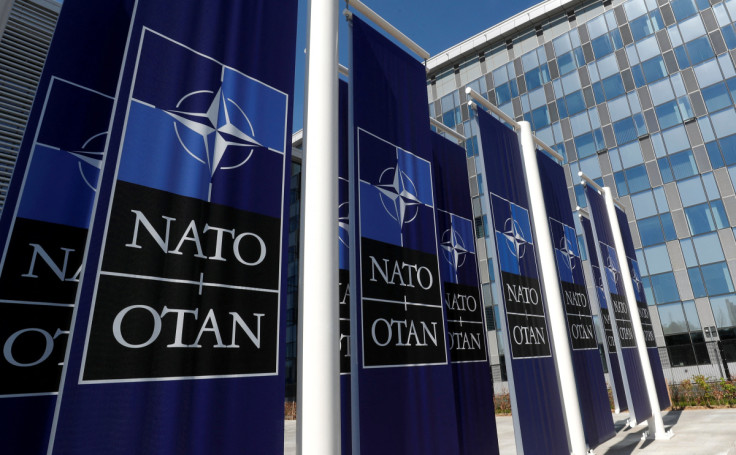NATO Chiefs of Defence meet in Brussels as 'a new era for collective defence' beckons
NATO Chiefs of Defence have met in Brussels with new Regional Plans on the agenda as concerns over the security threat posed by Russia motivate action.

On the 10th of May, a meeting between NATO Chiefs of Defence was held in Brussels. On the agenda was NATO's support for Ukraine and the transformation of the alliance to address key security challenges.
Britain was represented by Chief of Defence Staff, Admiral Sir Tony Radakin, who welcomed the new NATO Regional Plans and highlighted the importance of continued support for Ukraine in the ongoing Russo-Ukraine war.
'A new era for collective defence'
According to the Chair of the NATO Military Committee, Admiral Bauer, "NATO is in a new era for collective defence," one which has been provoked by Russia's persistent shaking of the "rules-based international order."
Admiral Bauer refers to the invasion of Ukraine by Russia as "the gravest threat to Euro-Atlantic security in decades." Reiterating NATO's support for Ukraine, he explained that "there is no doubt that NATO will support Ukraine for as long as it takes."
These comments echo the words of the European Commission President, Ursula von der Leyen, who pledged to "support Ukraine and its people, for as long as it takes".
Admiral Bauer made it explicitly clear what the mindset behind NATO activity is. In his words: "Russia will not stop at Ukraine." Instead, they will push for more territorial gains with "ambitions" extending "far beyond" Ukrainian borders if given the chance. He referred to Abkhazia, South Ossetia and Transnistria as examples of Russia's ambitions.
To address the security challenges presented by the current international climate, NATO has developed new Regional Plans for the first time since the end of the cold war. These plans empower NATO military commanders to defend the territory of member-states against Russia and terrorist groups through a multiplicity of options.
According to General Cavoli, Supreme Allied Commander Europe, NATO's Regional Plans are intended to "defend specific parts of NATO territory," with the integration of the national defence plans of front-line NATO members into broader NATO plans. The plans also consolidate the ability of NATO to transport forces to areas of need so that they are in the "right place at the right time."
Moreover, given the security threat posed by Russia, General Cavoli explained that the change shifts NATO's focus from "out-of-area contingency operations," to "large-scale operations to defend every inch of the Alliance's territory."
Therefore, given the increasingly hostile relations between Russia and the West, it appears NATO's original purpose is relevant again. NATO's Regional Plans reflect the intent to defend the territory of its members against Russian aggression.
NATO was created in 1949, with the original treaty signed by 12 nations including the US and Britain. The idea was that an attack against any one of the NATO members would lead to all members unifying in defence. The threat NATO members had in mind was that posed by the Soviet Union.
NATO's purpose of collective security was driven by the overarching bipolarity of the cold war international system, with the US and the Soviet Union co-existing in a state of geopolitical and diplomatic tension. After the end of the cold war and the end of the threat posed by the Soviet Union, NATO's purpose and mission were thrown into doubt.
NATO Expansion
Following the NATO meeting, the British government stated that the recent accession of Finland and the future inclusion of Sweden will "will make all Allies safer, and the Euro-Atlantic area more secure." The event was the first face-to-face meeting of NATO Chiefs of Defence to include Sweden.
According to Admiral Sir Tony Radakin, given NATO's increased membership "Putin has only succeeded in ensuring our Alliance is stronger than ever."
However, according to John Mearsheimer, a prominent scholar of international relations at the University of Chicago, NATO enlargement after the cold war is a key factor which explains Russia's motivation for invading Ukraine in the first place.
Mearsheimer has argued that "the United States and its European allies share most of the responsibility for the crisis," with NATO enlargement constituting part "of a larger strategy to move Ukraine out of Russia's orbit and integrate it into the West."
Crucially, Mearsheimer explains that Russia was opposed to NATO expansion from the onset. He explains how NATO considered the admittance of Georgia and Ukraine in 2008. Concerns over provoking Russia motivated opposition from France and Germany. Whilst not initiating the process of joining, NATO members agreed to declare that Georgia and Ukraine would eventually become members. Moreover, Russia was explicitly opposed.
© Copyright IBTimes 2025. All rights reserved.





















